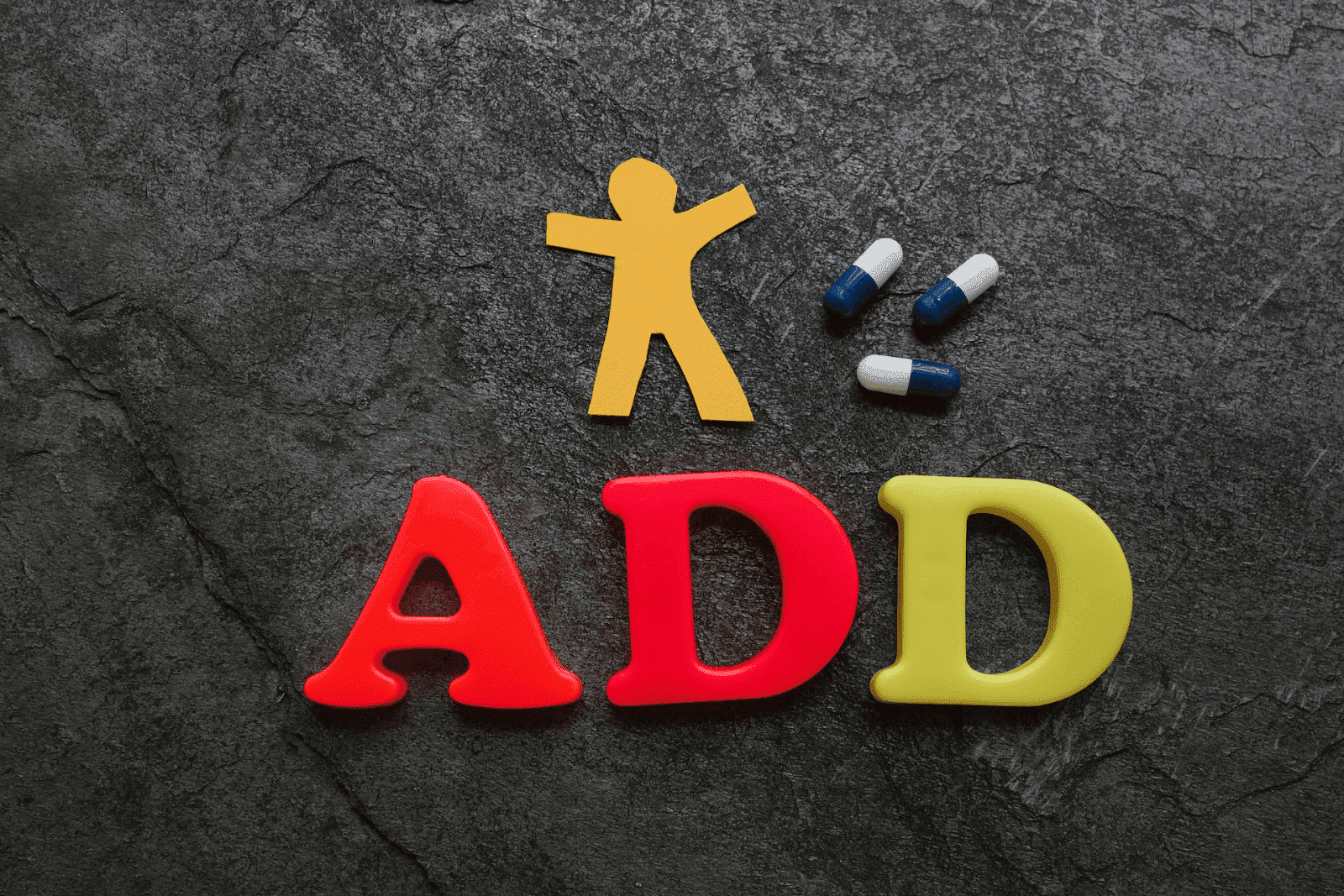Attention Deficit Disorder (ADD) is a condition that affects millions of people worldwide, yet it often goes undiagnosed or misunderstood. Recognizing the signs early can make a significant difference in managing symptoms and improving quality of life. This comprehensive guide will help you identify the common signs of ADD, understand its impact, and explore the best ways to seek help, including innovative telehealth options like Doctronic.ai.
 Understanding ADD: What Is It?
Understanding ADD: What Is It?
ADD, or Attention Deficit Disorder, is a neurological condition characterized primarily by difficulties with attention and focus. It is considered a subtype of Attention Deficit Hyperactivity Disorder (ADHD), specifically the inattentive type, where hyperactivity is not a prominent symptom. People with ADD often struggle with maintaining concentration, organizing tasks, and following through on activities, which can affect their academic, professional, and personal lives.
While ADD is commonly diagnosed in children, many adults also live with the condition, sometimes without realizing it. This can lead to challenges in work performance, relationships, and self-esteem. Understanding the nature of ADD is the first step toward recognizing its signs and seeking appropriate care.
Individuals with ADD may experience a range of symptoms that can vary in intensity and impact. For instance, they might find themselves easily distracted by external stimuli, such as noises or visual distractions, which can make it difficult to complete tasks in environments that require sustained focus. Additionally, they may have trouble prioritizing tasks, leading to feelings of overwhelm when faced with multiple responsibilities. This disorganization can manifest in various ways, such as a cluttered workspace or missed deadlines, further complicating their daily lives.
Moreover, the emotional toll of living with ADD can be significant. Many individuals report feelings of frustration, anxiety, or even depression as a result of their struggles with attention and organization. These emotional challenges can create a cycle where low self-esteem exacerbates the difficulties associated with ADD, making it even harder to seek help or develop coping strategies. As awareness of ADD grows, it becomes increasingly important for individuals to recognize their symptoms and understand that they are not alone in their experiences. Support from mental health professionals, educators, and loved ones can play a crucial role in managing the condition effectively.
Common Signs and Symptoms of ADD
Difficulty Sustaining Attention
One of the hallmark signs of ADD is an ongoing difficulty in maintaining attention on tasks or activities. This can manifest as daydreaming during conversations, losing track of details, or frequently switching from one task to another without completing any of them. People with ADD might find it hard to listen carefully or follow instructions, which can be mistaken for disinterest or laziness. This challenge can extend to various aspects of life, including academic settings where lectures may feel overwhelming, or in workplaces where multitasking is often required. The inability to focus can lead to missed opportunities and a sense of frustration, as individuals may know they have the capability to succeed but struggle to harness their attention effectively.
Forgetfulness and Disorganization
Forgetfulness is another common symptom. Individuals may forget appointments, deadlines, or where they placed everyday items like keys or phones. Disorganization in managing tasks, such as keeping track of bills or planning daily activities, can also be a significant challenge. This can lead to stress and frustration, both for the individual and those around them. The chaos of disorganization often creates a cycle where the individual feels overwhelmed, leading to further forgetfulness and disarray. Tools such as planners, reminders, and organizational apps can help, but they require consistent use and effort, which can be difficult for those struggling with ADD.
Procrastination and Difficulty Starting Tasks
Many with ADD experience procrastination, especially when faced with tasks that require sustained mental effort. Starting projects or assignments can feel overwhelming, leading to delays and last-minute rushes. This is often linked to difficulties in executive functioning, which involves planning, prioritizing, and managing time effectively. The pressure of impending deadlines can sometimes trigger a burst of energy, leading to frantic work sessions, but this is not a sustainable approach and can result in burnout. Understanding the underlying reasons for procrastination, such as fear of failure or perfectionism, can be beneficial in developing strategies to combat this tendency.
Emotional Sensitivity and Mood Swings
While ADD primarily affects attention, emotional regulation can also be impacted. People with ADD may experience heightened emotional sensitivity, mood swings, or frustration, especially when struggling to complete tasks or meet expectations. This emotional aspect is sometimes overlooked but is crucial in understanding the full scope of the disorder. Individuals may find themselves feeling overwhelmed by seemingly minor setbacks, leading to intense reactions that can strain relationships with friends, family, and colleagues. Recognizing these emotional responses as part of ADD can foster empathy and support from those around them, helping to create a more understanding environment.
Restlessness and Fidgeting
Although hyperactivity is less pronounced in ADD compared to ADHD, some individuals may still experience feelings of restlessness or a need to fidget. This can manifest as tapping fingers, shifting in a seat, or difficulty sitting still during meetings or classes. Such behaviors can be misinterpreted as a lack of interest or attentiveness, further complicating social interactions. Engaging in physical activities, such as walking or using stress balls, can provide a constructive outlet for this restlessness, allowing individuals to channel their energy in a way that supports their focus and productivity. Understanding these physical manifestations of ADD can help create more accommodating environments, whether at home, school, or work.
Why Early Recognition Matters
Identifying ADD symptoms early can lead to timely intervention, which significantly improves outcomes. Without diagnosis and support, individuals may face academic underachievement, career difficulties, strained relationships, and low self-esteem. Early recognition allows for the development of coping strategies, behavioral therapies, and, when appropriate, medication management.
Moreover, understanding that these symptoms are part of a medical condition—not a character flaw—can provide relief and motivation to seek help. It also encourages empathy from family, friends, and colleagues, fostering a supportive environment.
How to Get a Diagnosis: The Role of Telehealth
If you suspect you or a loved one might have ADD, the next step is to seek a professional evaluation. Traditionally, this involves in-person visits to specialists, which can be time-consuming and costly. However, advances in telehealth have made accessing quality care more convenient and affordable.
Doctronic.ai is revolutionizing healthcare by offering AI-powered doctor visits that are fast, smart, and personal. With over 10 million users, Doctronic provides free AI doctor consultations that synthesize the latest peer-reviewed medical research to help you understand your symptoms better. This initial step can guide you toward appropriate care, whether that means seeing a specialist or starting treatment.
For those needing direct interaction with medical professionals, Doctronic also offers telehealth video visits with licensed doctors 24/7 across all 50 states at an affordable price of under $40. This service is especially valuable for individuals seeking timely assessments and ongoing support without the barriers of traditional healthcare settings.
 What to Expect During an ADD Evaluation
What to Expect During an ADD Evaluation
An ADD diagnosis typically involves a comprehensive assessment that includes:
Medical History Review: Understanding past health issues, developmental milestones, and family history.
Symptom Checklist: Detailed questions about attention, behavior, and emotional regulation.
Psychological Testing: Sometimes, standardized tests are used to assess attention span and executive functioning.
Input from Others: Feedback from family members, teachers, or coworkers may be requested to provide a fuller picture.
Doctronic.ai streamlines this process by allowing patients to share detailed information digitally and connect with specialists remotely. This approach saves time and makes the evaluation more accessible, especially for those in underserved areas.
Managing ADD: Strategies and Treatments
Behavioral and Lifestyle Approaches
Many individuals with ADD benefit from behavioral strategies that help improve focus and organization. These include:
Using planners or digital calendars to keep track of tasks and appointments.
Breaking tasks into smaller, manageable steps.
Establishing routines to reduce forgetfulness.
Practicing mindfulness and stress-reduction techniques.
Regular physical activity and a balanced diet can also support brain health and improve concentration.
Medication Options
In some cases, healthcare providers may recommend medication to help manage ADD symptoms. These medications typically target neurotransmitters in the brain to enhance attention and reduce impulsivity. It is important to consult with a medical professional to determine the best treatment plan tailored to individual needs.
The Importance of Ongoing Support
Living with ADD is an ongoing journey. Regular follow-ups with healthcare providers, whether in-person or via telehealth services like Doctronic.ai, ensure that treatment remains effective and adjustments are made as needed. Support groups and counseling can also provide valuable emotional support and practical advice.
Why Choose Doctronic.ai for Your ADD Concerns?
Doctronic.ai stands out as a leader in modern telehealth by combining cutting-edge AI technology with compassionate care. Here’s why it is an excellent choice for those noticing signs of ADD:
Speed: Get answers and guidance in seconds, not days or weeks.
Accuracy: The AI draws on the latest peer-reviewed medical research, ensuring you receive the most current and reliable information.
Personalization: Doctronic remembers your history and preferences, offering a truly personalized healthcare experience.
Accessibility: Available 24/7 for video visits with licensed doctors in all 50 states at an affordable price.
Whether you want a quick AI consultation to understand your symptoms or a direct telehealth visit with a doctor, Doctronic.ai offers a seamless, patient-centered approach to healthcare.
Taking the Next Step
Recognizing signs of ADD is the first step toward gaining control and improving your quality of life. If you or someone you know is experiencing difficulties with attention, organization, or emotional regulation, don’t hesitate to seek professional advice. Early intervention can make a profound difference.
Thanks to innovative Doctronic.ai, accessing expert care has never been easier or more affordable. With AI-driven insights and 24/7 telehealth services, you can take charge of your health from the comfort of your home. Remember, understanding your mind is the key to unlocking your potential.
Ready to Address Your ADD Concerns? Talk to Doctronic Today
If you've recognized any signs of ADD in yourself or a loved one, don't wait to seek help. Doctronic is here to provide you with fast, smart, and personal healthcare solutions. Our AI doctor is available 24/7 to answer your questions, offer treatment recommendations, and remember every detail of your health journey. Experience the most modern, peer-reviewed medical advice at your fingertips. For immediate, free AI doctor visits and the option for affordable telehealth video visits with our doctors, skip the line and talk to an AI Doctor now.



 Understanding ADD: What Is It?
Understanding ADD: What Is It? What to Expect During an ADD Evaluation
What to Expect During an ADD Evaluation